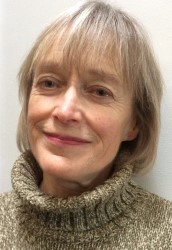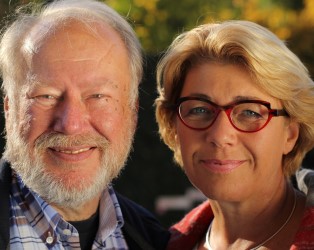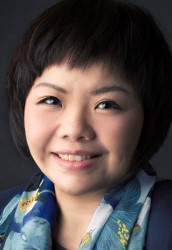Healthy Autonomy
Association for Promoting Healthy Autonomy e.V.


Our Speakers
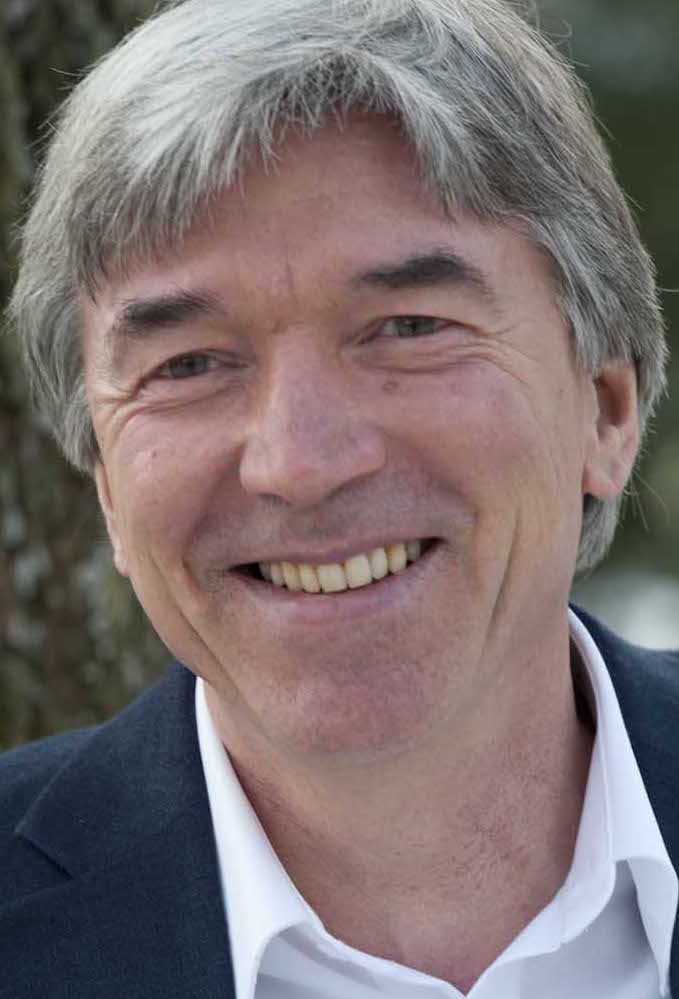
Friday, Oct. 21, 2016, 01:15 – 02:45 pm
What is the central reference point for our change processes? In the past, we thought it must be the family or "the system". Today we know that only we can be our own point of reference. Therefore, our "I" must be the central focus of therapy. But what is my "I"? How does it develop? What hinders my "I" development? How does trauma effect this development? What is the difference between a healthy identity and identification processes that harm us? In the lecture, the insight and knowledge through the "self-encounters" within the last two years, will be summarized and put up for discussion.
Franz Ruppert, born in 1957, professor of psychology at the Catholic University of Applied Sciences Foundation in Munich, psychotherapist in private practice trainings and supervisions, leads worldwide seminars and lectures.
Since 1994 he has developed his own theory and method of Psychotherapy. The "Identity-oriented Psychotrauma Theory" is the basis for a method that he calls "Self-encounter with the Sentence of Intention". The development of his theory and method are documented in seven books (Relationships in the Professional World ", 2001," Confused Souls, "2002" Trauma, bonding and family constellations ", 2005," Splitting of the Soul and Inner Healing ", 2007" Symbiosis and Autonomy“, 2010 "Trauma, Fear and Love", 2012) and "Early Trauma", in 2014. His books have been translated into English, Norwegian, Italian, Spanish, Brazilian, Russian, Czech, Romanian, Polish, Turkish and Dutch.
Practice in 81673 Münchenwww.franz-ruppert.deThis email address is being protected from spambots. You need JavaScript enabled to view it.+49 170 7348434
Saturday, Oct. 22, 2016, 09:15 – 10:30 am
The focus on our own will has been neglected in recent years. Too rapidly has the focus been directed on the trauma and the definitions, which thus, emerged in the psyche. But for lasting and sustainable change to happen, a deliberate decision is needed. Therefore, in working with the "sentence of intention" the "will" plays an important role. And the question arises: How does our "will" develop? What promotes and what hinders it? How do traumatic experiences influence the major formation of a free human will?
Franz Ruppert, born in 1957, professor of psychology at the Catholic University of Applied Sciences Foundation in Munich, psychotherapist in private practice trainings and supervisions, leads worldwide seminars and lectures.
Since 1994 he has developed his own theory and method of Psychotherapy. The "Identity-oriented Psychotrauma Theory" is the basis for a method that he calls "Self-encounter with the Sentence of Intention". The development of his theory and method are documented in seven books (Relationships in the Professional World ", 2001," Confused Souls, "2002" Trauma, bonding and family constellations ", 2005," Splitting of the Soul and Inner Healing ", 2007" Symbiosis and Autonomy“, 2010 "Trauma, Fear and Love", 2012) and "Early Trauma", in 2014. His books have been translated into English, Norwegian, Italian, Spanish, Brazilian, Russian, Czech, Romanian, Polish, Turkish and Dutch.
Practice in 81673 Münchenwww.franz-ruppert.deThis email address is being protected from spambots. You need JavaScript enabled to view it.+49 170 7348434
Sunday, Oct. 23, 2016, 09:15 – 10:30 am
Working with the "sentence of intention" has once again caused a profound change in the therapeutic process. In the lecture, the development of the "sentence of intention" to the "self-encounter with the sentence of intention" are understood and justified. Consequences will be shown, which are reflected in the choice of words for this kind of work. Reasonably, we no longer speak about "constellations" but of "self-encounters", and formerly known, "multi-generational Psychotraumatology" basic theory, has now been replaced with the "Identity-oriented Psychotrauma Therapy/Counselling" (IoPT).
Franz Ruppert, born in 1957, professor of psychology at the Catholic University of Applied Sciences Foundation in Munich, psychotherapist in private practice trainings and supervisions, leads worldwide seminars and lectures.
Since 1994 he has developed his own theory and method of Psychotherapy. The "Identity-oriented Psychotrauma Theory" is the basis for a method that he calls "Self-encounter with the Sentence of Intention". The development of his theory and method are documented in seven books (Relationships in the Professional World ", 2001," Confused Souls, "2002" Trauma, bonding and family constellations ", 2005," Splitting of the Soul and Inner Healing ", 2007" Symbiosis and Autonomy“, 2010 "Trauma, Fear and Love", 2012) and "Early Trauma", in 2014. His books have been translated into English, Norwegian, Italian, Spanish, Brazilian, Russian, Czech, Romanian, Polish, Turkish and Dutch.
Praxis in 81673 Münchenwww.franz-ruppert.deThis email address is being protected from spambots. You need JavaScript enabled to view it.+49 170 7348434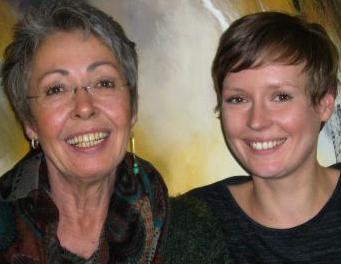
Workshop Sa07: Saturday, Oct. 22, 2016, 11:00 am – 01:00 pm
The 'Zeitgeist' has reinvented the image of the "good mother" over and over again. For thousands of years, the mother was feared and worshipped as the origin of life. She has been projected with taboos, used as a bearing machine and kept under control. She was an object, not a subject.
In the 19th century there were the pictures of the selfless, self-sacrificing mother. In the 20th century the image of the "good German mother" was celebrated, Mother Crosses of Honour were awarded and Mother's Day got a special importance. Womanhood fulfilled in motherhood.
Now, in the 21st century it is indicated to women that: Everything is possible! But regardless whether a "woman" remains at home with her children, or returns to her profession at an early stage, there are always mothers or experts who know better. There are downright "trench warfare’s" among mothers as to how a "good" mother should be. Which mother hasn't experienced the showering of well-meaning advice immediately after birth? It seems that, never before in history, have there been so many insecure and anxious mothers, who continually fail to fulfill the expectations placed upon them.
Using the Psychotraumatological Identity Therapy, Birgit Assell and her daughter, Lara Fischer together, with mothers and grandmothers, would like to find out, how self-determined we can live our feminine roles as a mother or in being a woman, whether we follow social beliefs of "motherhood", or to what extent our own mothers and their images of the mother role, are still effective in us.
Birgit Assel, born in 1960, Dipl. Social worker, married with two children and two grandchildren, active in private practice since 1998. Since 2007, with the focus of the multi-generational Psychotraumatology by Prof. Ruppert. Co-author of "Early trauma", therapeutic support, seminars, supervision and since 2009 provides advanced training.
Lara Fischer, born 1990, animal psychologist, specializing in dog behavior counseling and therapy. Since February 2013 mother of twin boys, who have turned her life upside down, and have challenged a complete reorientation of her life plan, according to the motto: Twins are not wished for, they're a gift.
Practice in 31032 Bethelnwww.igtv.deThis email address is being protected from spambots. You need JavaScript enabled to view it.+49 5182 908555Workshop So07: Sunday, Oct. 23, 2016, 11:00 am – 01:00 pm
More and more people are gravitatin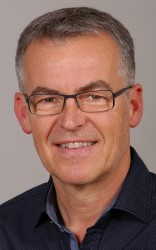
Mindfulness-based therapeutic interventions such as the MBSR program (Mindfulness Based Stress Reduction) are able to support trauma specific therapy approaches effectively, by promoting physical, psychological and neurobiological integration of disintegrated content of consciousness. From this perspective, Mindfulness training is a sensible and practical supplement on the way to a healthy self, even and especially in trauma work. The workshop includes a theoretical input and a brief guide to a practical mindfulness practice, and concluding with a self-encounter with the sentence of intention.
Dr. Med. Harald Banzhaf is a specialist in general medicine, as well as environmental, social, emergency medicine, manual therapy, naturopathic treatment, among other things, MBSR teacher and trainer. Trauma therapist by Franz Ruppert, author. Lectureship and teaching practice at the University of Tübingen. Group practice for Integrative Medicine.
Practice in 72406 Bisingen/Hohenzollernwww.dr-banzhaf.deThis email address is being protected from spambots. You need JavaScript enabled to view it.+49 7476 91233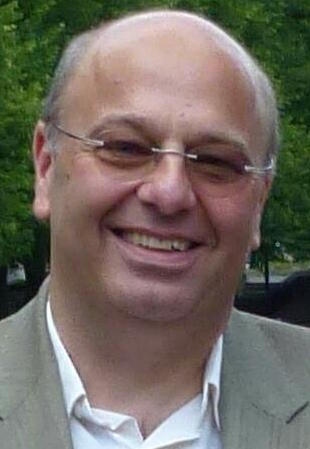
Workshop Sa01: Saturday, Oct. 22, 2016, 11:00 am – 01:00 pm
Due to infringing dynamics, identity development can be traumatized, even with siblings. And unfortunately, the causes of problems in sibling relationships are often hidden or even neglected. Because parents haven't come to terms with their own trauma, they are quickly overwhelmed in family life situations. Instead of building loving emotional closeness, they try to "function" and thus, can become dangerous for their children.
One popular relief strategy of parents is, to hand over the responsibility to siblings as watchdogs and educators. The lack of parental roles is unloving and often brutally adopted among siblings. So children are not only traumatized by both parents, but also by siblings. While children are left with this kind of "self-education", destructive hierarchies, competitions, even psychological and physical violence can develop. Sexual confusion is often a result with the beginning of puberty.
These dynamics between siblings are often reflected as idyllic images to hide the lack of loving support in the identity development. However, these mostly unexplained perpetrator-victim dynamics influence our present relationships. In the "self-encounter" siblings are then reflected as a cause of traumatization in the identity development.
This workshop is an opportunity to address this issue.
Detlev Blechner, born 1960, social scientist, father of a daughter. He works as a therapist and coach, as well as a lecturer at universities and study institutions.
Practice in 30451 Hannoverwww.detlev-blechner.demail@detlev-blechner.de+49 170 2864764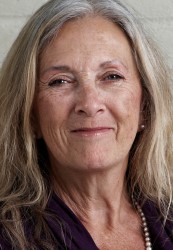
Workshop So06: Sunday, Oct. 23, 2016, 11:00 am – 01:00 pm
The individual session is crucial to our overall profession and practice. Since 2000 I have made the individual session a particular part of my study of working with the process of constellations, what we are now calling the Resonance Encounter session. The protocol of working in this way, respecting the client, using myself and how the client can encounter his or herself in a useful way is the centre of this workshop. I hope to share what I have learned and discuss with participants any thoughts you have.
Vivian Broughton is a Psychotrauma Therapist with a long experience as a psychotherapist (since 1989) and constellations facilitator (since 2000). She came into contact with Franz Ruppert and his work in 2004 and has been a student of his work for the past 10 years. A particular interest has always been how to use the method and theory in the individual session. Currently Vivian works in London and she has worked with Identity Theory and Therapy in many other countries: Turkey, Norway, Brazil, Singapore, Romania, Netherlands.
Practice in London, Englandwww.vivianbroughton.cominfo@vivianbroughton.com+44 7813 812852Workshop Fr08: Friday, Oct. 21, 2016, 03:15 – 05:00 pm
This workshop looks at trauma during medical intervention and how we experience a loss of self in giving our body and autonomy over to medical expertise. It explores how our own birth trauma and trauma-survival splits may be re-triggered, and how feelings of fear, helplessness, grief, and sometimes abuse, can accompany medical procedures and stay with us for many years, however fortunate we feel to be alive.
How can the self-encounter with the sentence of intention support recovery from trauma and loss of self after medical treatment, so that we may reclaim our body-psyche in a healing way? Is it possible that integrating the splits from an original birth trauma, in this way, also brings healing of subsequent medical traumas we have experienced?
This workshop will begin with Kate Collier sharing her own experience of how her birth and birthing trauma constellations have helped her understand and recover from the later trauma diagnosis and treatment of cancer.
Kate Collier is a counsellor is a Medical Centre and in private practice in the UK and, after working with family constellations for many years, has been studying Franz Ruppert’s theory and methodology under Vivian Broughton for four years. She is an apprentice on the London Trauma Training.
Practice in Cheltenham, Englandwww.katecollier.netfkatecollier@yahoo.co.uk+44 7749193255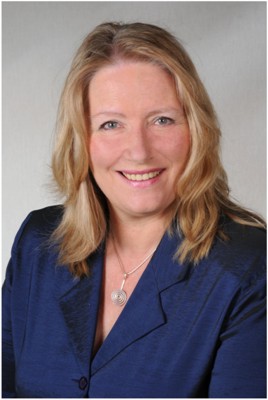
Workshop Sa15: Oct. 22, 2016, 02:30 – 04:30 pm
Anyone who has suffered pain, over a longer period of time, wishes to escape this anguish. In Germany, about 25% of the people receive lasting pain relief care. But rarely sustainable improvement occurs. The pain, that once was a protective warning signal, has long lost its natural function. It has moved into an excessive, often chronic pain, which makes those affected helpless and turns them into victims. It often bears no relation to the organic results and usually shows various forms. How is this possible? What has an effect on this often differently perceived pain? What hurts anyway? What really hurts so deeply? Scientifically, we now know that the brain areas for emotions and physical pain are in the same range. This gives an indication that the body and mind cannot be separated. Therefore, to what extent is emotional stress and early trauma the cause of experienced pain, to which an enhanced physical component has been attributed? Can it be that the so strongly felt pain has a completely different context and it improves when we deal with our mental, unloved and traumatized inner parts? This workshop is about these and many other questions, after a short presentation with practical examples. Following, there is the opportunity to look at one's own pain issue.
Annemarie Denk, Dipl. Soz. Päd. (FH), qualified social pedagogue, individual, couple and family therapist, health educator, medical studies, hypnotherapy. Since 1998, active in medical practices (focus on pain, stress, relaxation, infertility, psycho-oncology), in the treatment of pain of the Paracelsus Klinik Munich and in private practice. 2012 training in identity-oriented psycho trauma therapy with Franz Ruppert. Co-author of the book "Early trauma". Individual and group work.
Practice in 80538 Münchenwww.medibalance.comdenk@medibalance.com+49 170 4919084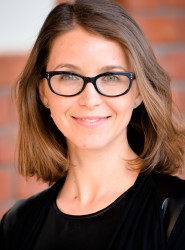
Workshop Sa11: Saturday, Oct 22, 2016, 02:30 – 04.30 pm
This question came to me a few years back, while I was contemplating my life and how it had changed after I met my partner. Looking at the choices I made, the role that he plays in my life and how I transformed from who I was to who I am. In a healthy partnership, it takes three to tango—two "I's" and a "we." The notion of "we" is talked about all the time, but often the importance of the "I's" are overlooked. Without two healthy "I's", there can be no successful "we." A traumatized "I" or a lost connection to one’s sense of self can likely lead to dependency on a partner to assume responsibilities, consequently resulting in indirect and distorted ways of expressing our feelings.
This workshop invites you to accompany me in this ongoing journey of rediscovering our “I” and to explore together how the need for closeness and security can co-exist in our quest for separateness and freedom. How a healthy “I” can make a better “we”. As the poet Rumi once said: “Lovers don’t finally meet somewhere. They are in each other all along.” We are in each other all along.
Anamaria Drăguța, born 1986, is a psychologist and psychotherapist. She graduated psychology in 2011 and has a Masters Degree in experiential psychotherapy. She is passionate about brief therapies, attending various trainings in solution-focus, solution-oriented, strategic, collaborative, and contextual-modular brief therapies. She also works with children and families by combining an experiential approach with systemic and narrative therapies. In 2012 she began her training on trauma with Diana Vasile and this year she is training in constellations with Franz Ruppert, Diana Vasile and Marta Thorsheim.
Practice in Bucharestwww.ora-de-terapie.roanamaria.draguta@ora-de-terapie.ro+40 766 450 010 Workshop So04: Sunday, Oct. 23, 2016, 11:00 am – 01:00 pm
Workshop So04: Sunday, Oct. 23, 2016, 11:00 am – 01:00 pm
- What profession have I chosen?
- Why have I chosen this job?
- How did I conduct myself during my professional training?
- Have I maintained my occupation?
- Did I feel qualified/competent?
- How did I create the beginning of my professional career?
- What professional decisions did I make?
- Who or what guided me in my career decisions?
- Have I determined my profession freely or did I let myself be defined?
- Am I suffering from occupational depression?
- How do I see myself today in my profession?
- Or have I already withdrawn from my job?
- Why am I not happy in my job?
In the workshop, and based on these questions, we will discuss the different "I-identities" that one assumes in the course of a professional life. Drawn participants will get an opportunity to identify and state their current professional issues working with the method "self-encounter with the sentence of concern".
Welcome are consultants, coaches and constellation facilitators as well as employees and employers.
Gerlinde Fischedick. Psychological System therapist and consultant, mediator and lawyer, lives in Hanover and Celle.
Practice in 30161 Hannoverwww.zentrum-lebenstraining.defischedick@zentrum-lebenstraining.de+49 511 89 84 614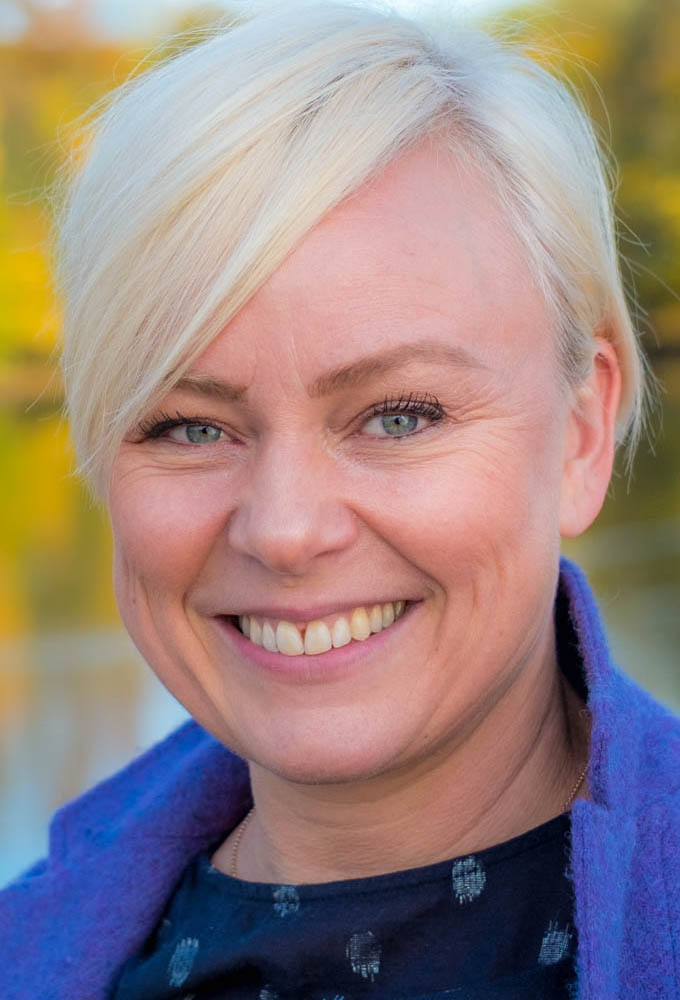
Workshop Fr03: Friday, Oct. 21, 2016, 03.15 – 05:00 pm
How do you relate to your pet? Do you consider it a household or family member? Is your dog a replacement for a partner or is your cat a substitute for a child? Do you have a pet with anxiety or any other symptoms––whether it’s physical or psychological? If you have more than one animal in your household, do they get along with each other?
We form relationships with our pets. In this workshop I invite you to explore this relationship and maybe symptoms that may indicate that your cat, dog, rodent or bird (or any other animal for that matter) is not thriving or is having difficulties finding their place. Sometimes these are symptoms for our pet's entanglements in us humans. Just as we got entangled in our parents or caretakers unresolved traumas when we were small and vulnerable, our pets are able to do the same due to their biological and physical need to form bonds with us humans.
And––do we, humans, also entangle with our pets?
With the background of Prof. Franz Ruppert’s model of traumatization and Identity oriented Psychotraumatheory we can explore our „Sentence of Intention“ with the help of reference points, like other persons or objects, and learn step by step how to form healthy and thriving relationships with ourselves and other beings.
Bente Fjeldstad, Psychotraumatherapist, trained with Marta Thorsheim and Prof. Franz Ruppert since 2010. Practice since 2011 in both individual and group settings. She has former practice from massage therapy and infant massage for bonding purposes. She lived with pets all her life. Currently, she and her husband share household with two cats.
Practice in Oslo, Norwaywww.bentefjeldstad.nobente.fjeldstad@gmail.com+47 92483702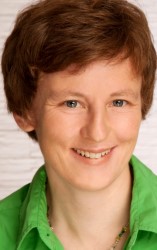
Workshop So08: Sunday, Oct. 23, 2016, 11:00 am – 01.00 pm
Victim and perpetrator parts arise in traumatic violent experiences. They are interdependent. Thus, our victim parts lead us to our perpetrator parts. These are structures in our personality, in which hurtful, destructive energies, which made us into victims, have been stored and bound. Because of these reasons we hurt ourselves and / or others. While we "welcome" victim parts, we frequently, reject perpetrator parts. We protect ourselves from these destructive parts and defend ourselves against these aggressively. So we find ourselves again in infringing perpetrator-victim dynamics. Therefore, it is not surprising that we hide, trivialize and deny our perpetrator parts in counseling and therapy,––and do not even take these with us to individual sessions or group seminars. Why are there parts within me that hurt me and / or others? How can I recognize and deal with my perpetrator parts? How can I helpingly deal with my perpetrator parts? And also: How can I cope with the perpetrator parts in other people?
This workshop is looking for answers to these questions based on my short theoretical introduction, a concrete "self-encounter with (un) known perpetrator parts" and a final reflection.
Christina Freund, born 1974, 1st State Exam German / History (LA Gymnasium), Qualified Social Worker with further training on trauma counseling/Trauma Education (Lutz-Ulrich Besser, zptn Niedersachsen) and trauma constellation with Franz Ruppert. Since 2009 seminars and individual work in private practice and since 2012 lecturer at the KSFH Munich.
Practice in 80803 Münchenwww.bindung-trauma-aufstellung.dechristinafreund@gmx.net+49 171 1938319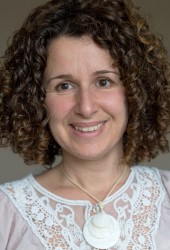
Workshop Fr12: Friday, Oct. 21, 2016, 05:30 – 07:30 pm
Who am I as a mother and how does my relationship with my children change as my healthy self-strengthens?
This workshop will focus on what it means to be a mother, in the context of understanding trauma. We will examine the central role of a mother within the family, drawing on our experiences from conception onwards, and the challenge of appropriately meeting the developmental needs of young children.
Topics for discussion:
- The ways in which children exhibit symptoms of MGPT
- Developing the language of trauma within the family
- Personal examples of changes in the parent/child relationship, as a result of working with our trauma
- How children can act as indicators of the issues their parents need to address
- Perpetrator-victim dynamics between siblings
- The positive impact of truth on children (about their birth, traumatic events in their lives etc.)
- The effect on our children when we, as parents, are in our healthy, survival or trauma selves
- Developing healthy symbiosis within the family and supporting our children’s healthy autonomy
Maria Green, born 1972 in Cape Town. She has completed the International Trauma Training in Denmark and continues as an apprentice on Vivian Broughton's London Training 2015-2016. Together with Lucy Jameson, she runs monthly group workshops using the Sentence of Intention as well as offering individual sessions. She lives with her husband and 2 young children in West Sussex, UK.
Practice in West Sussex, Englandwww.symbiosis-autonomy.commariasterianos@googlemail.com+44 7557 410 381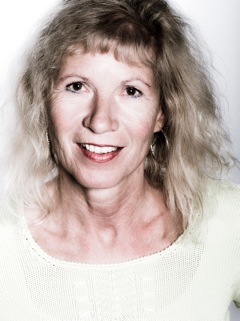
Workshop Sa11: Saturday, Oct. 22, 2016, 02:30 – 04.30 pm
Our body is a huge cosmos with many ingredients that permanently respond to one another and which at best, work in harmony. Latest research shows, that these processes are controlled mainly by our psyche and for the most part, takes place unconsciously, this means, independent of our conscious control. As a result, our body is very dependent on the state of our psyche. If the psyche is influenced by traumatic experiences, for example, by disturbed or even destructive relationships in the family of origin, this may lead to symptoms. These "cries for help" of the body are an indication of these earlier traumas (and recurrences).
In this workshop we have chosen to look at digestion: It responds often sensitively to our eating behavior, the quality of food, our profession, to our relationships and other stressors in our fast-paced society. Physical problems are "combated" with drugs and surgery––but the symptoms are not easily kept quiet or pushed away, they may appear again, perhaps in a different form. In this workshop we can explore and experience a "self-encounter with the sentence of intention", and learn how to achieve a better digestion in a different way: How to develop a healthy and stable "I" (as an essential part of the psyche). Thereby providing greater clarity and the ability to make decisions, which „I“––emotionally and materially––is taken in and which I better refuse. Then "I" can digest my life and food better.
Evelyn Hähnel, naturopath since 1994, body therapy according to Traditional Chinese Medicine, psycho-trauma therapy, yoga classes and nutritional advice. Since 2000, continuous internships and training in identity-oriented psycho trauma therapy by Professor Dr. Franz Ruppert. Since 2007 therapy groups. Since 2015 head of training with Franz Ruppert in Bilbao, Spain.
Practice in Munichwww.tao-seminare.deinfo@tao-seminare.de+49 89 571775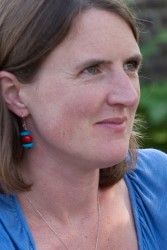 Workshop Fr12: Friday, Oct. 21, 2016, 05:30 – 07:30 pm
Workshop Fr12: Friday, Oct. 21, 2016, 05:30 – 07:30 pm
Who am I as a mother and how does my relationship with my children change as my healthy self-strengthens?
This workshop will focus on what it means to be a mother, in the context of understanding trauma. We will examine the central role of a mother within the family, drawing on our experiences from conception onwards, and the challenge of appropriately meeting the developmental needs of young children.
Topics for discussion:
- The ways in which children exhibit symptoms of MGPT
- Developing the language of trauma within the family
- Personal examples of changes in the parent/child relationship, as a result of working with our trauma
- How children can act as indicators of the issues their parents need to address
- Perpetrator-victim dynamics between siblings
- The positive impact of truth on children (about their birth, traumatic events in their lives etc.)
- The effect on our children when we, as parents, are in our healthy, survival or trauma selves
- Developing healthy symbiosis within the family and supporting our children’s healthy autonomy
Lucy Jameson, born 1976. She co-administrates Vivian Broughton’s London training, and is an ongoing student of Franz Ruppert’s work. Together with Maria Green, she runs monthly group workshops using the Sentence of Intention as well as offering individual sessions. She lives with her partner and two young children in an intentional community in West Sussex.
Practice in West Sussex, Englandwww.symbiosis-autonomy.cominfo@healthy-autonomy.co.uk+44 7932 074 201
Workshop Sa02: Saturday, Oct. 22, 2016, 11:00 am – 01:00 pm
When a child does not experience loving and warm contact with the mother, it falls into feelings of bottomless loneliness. It hungers for contact and love. In it's despair and feelings of forsakenness, it clings to every attention that is given. It can no longer distinguish in its distress: who is kind to me, and who will harm me? It can also become a victim of sexual abuse.
Conscious memories are often buried and deeply repressed. Sexual abuse is accompanied by extreme feelings of fear, powerlessness, helplessness, shame and disgust. The body becomes stiff, the unbearable emotions are frozen, contact to the own body must be broken off, and from this time on, the body is perceived as a foreign object. Physicalness and own sexual needs are rejected and fought subconsciously. Self-injury, eating disorders, addictions, and a blocked or destructive sexuality are frequent consequences, as well as physical illnesses such as bladder infections, fungal infections, fibroids, tumors, skin diseases, migraines and autoimmune disease.
In the "self-encounter with the sentence of concern" repressed experiences and emotions are tracked down. Step by step we explore what prevents us from living a free life. The contact with our self and our identity are central. It is possible to be and live in your own body and to feel comfortable, alive, energetic and sensual.
Ellen Kersten, born in 1969 in the Czech Republic and since 1979 in Germany. First job a bank clerk, two children, since 1995 alternative practitioner in her own practice, focus: Identity oriented psychotrauma therapy according to Prof. Franz Ruppert in groups and individual work, as well as classic homeopathy.
Practice in 61348 Bad Homburgwww.naturheilpraxis-kersten.deellen.kersten@t-online.de+49 6172 9235995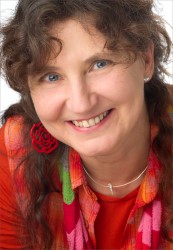
Workshop Fr07: Friday, Oct. 21, 2016, 03:15 – 05:00 pm
There are events in life, which change the everyday lives of those affected, completely. For example, the loss of a relative or a friend can fully "derail" those concerned. The circumstances of the loss, might release own fears. If a relative e.g. dies of cancer, the question may arise: "Will I also get cancer?" Even own illnesses, particularly life-threatening or terminal illnesses, can lead to self-reflection: What can I do for myself? What can I change, so that I feel better? Similar questions arise when experiencing own casualties or other disasters.
War, torture and its consequential damages are traumatic experiences that often change the lives of those affected, forever. There are people who simply go on living as before the event, others change their lives completely.
The questions of "Why me"? Why has this happened to me?, are some of the many diverse issues.
In this workshop Kerstin Kirschniok points to the possibilities that the Identity oriented psycho trauma theory- and therapy (iOPT), based on the method of Prof. Franz Ruppert, "self-encounter with the sentence of intention, provides". In addition, there will be the opportunity for self-experience and awareness.
Kerstin Kirschniok, married, one son, who is suffering from cancer since 2013, but now on the way to recovery since 2016. Since 2010, she has been accompanying people in her practice, working with the method according to Prof. Franz Ruppert.
Practice in 31141 Hildesheimwww.kerstin-kirschniok.deinfo@kerstin-kirschniok.de+49 5064 2684028
Workshop So1: Sunday, Oct. 23, 2016, 11:00 am – 01:00 pm
The first reaction of every client that I ask this question is one of astonishment and confusion.
The posttraumatic pathology could take on many forms; either psychological or physical illnesses. But we need to look behind them. Working on a symptom is never healing, simply because the symptom is never the real problem. We need to consider it as a reaction to “something”, and this “something” is a type of trauma: trauma of love, existential or trauma of loss.
Sometimes I observe in constellations, that the ‘I’, hides behind the ‘symptom’, as a result of a destructive relationship. Or that the illness is not the illness, it’s her own early trauma she doesn’t want to see. Or that the “I” is trying to reach the neglecting mother through the developed autoimmune disease.
The illness as a distraction, preventing us from noticing something we don’t want to see in our life, a protective mechanism against the trauma feelings. Understanding the unconscious role this plays really can make a difference in our healing process.
I will facilitate one or two constellations to provide the opportunity to see more clearly the causes behind the psychological and somatic illnesses.
Maria-Magdalena Macarenco, born 1976, lives in Constanta (Romania). She is a clinical psychologist and EMDR therapist in the army and in her private practice, with 14 years’ experience. Specialized in trauma and PTSD, trained in EMDR, systemic constellations and multigenerational psych traumatology. Since 2013, she offers constellations seminars using Prof. Ruppert’s method and workshops on psychotrauma.
Practice in Constanta, Romaniawww.psiholog-macarenco.romaria.macarenco@psihotrauma.ro+40 721460399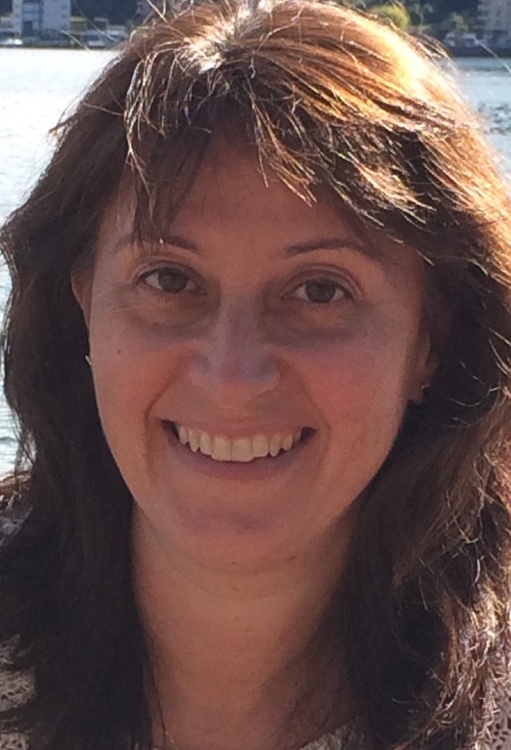
Workshop Fr01: Friday, Oct. 21, 2016, 03:15 – 05:00 pm
"I am ...", "My name is ...", "My real name is ... but they call me ..." How do we introduce ourselves to other people? Our name accompanies us almost since we were born, and we use it repeatedly to introduce ourselves, when signing our names- we identify with it. But how do we feel with it? Are we really meant? Do we like our names? Why do we have this name? Do we feel uncomfortable with it or does it make us happy?
Maybe our parents wanted it, in memory of a late uncle or a beloved sister. Perhaps in their youth they had idols with this name. Our name may have been misunderstood at the registry office and thus misspelled or maybe our parents could not agree on a name and the officer then picked a name from a list. Names can also be given due to a trend or fashion. We often have multiple names, compound names. Our identity is closely connected with it. How does our name affect us?
In this workshop we will go together on an expedition, to discover what our name means to us, how intimately connected we are with it and thus with ourselves, and how important it is for our identity, in order to feel good.
Patrizia Manukian, born in 1967, graduated naturopath, kinesiologist, Craniosacral therapist. 2010-2013 training with Prof. Franz Ruppert in multi-generational Psychotraumatology. Since 2010, accompanying the method "sentence of concern" for the self-encounter groups and individual work. She organizes and translates seminars and lectures by Franz Ruppert in Italy.
Practice in Bologna, Italywww.ritrovaresestessi.compmanukian67@gmail.com+39 348 7164477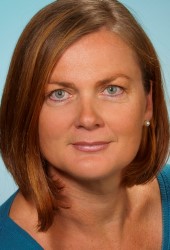
Workshop Fr10: Friday, Oct. 21, 2016, 05:30 – 07:15 pm
In our originating experiences and beyond, crucial imprints and patterns are established for the rest of our lives. Conception, nidation-implantation, the moment when our parents discovered that they are pregnant with us, our further experience in the womb, the birth and the first few hours, weeks and months afterwards are originating experiences that shape our future relationships fundamentally.
These are all experiences that affect us at a time of great vulnerability and limited self-determination. These earliest experiences reach deep into our body and psyche. It is this vulnerability that needs a special space of mindfulness and caution to invite healing when needed in these areas.
Using the method "Constellation of the sentence of concern" this workshop would like to be an invitation to mindfulness - perhaps the beginning or next step to a healthy, attentive and loving relationship with yourself and everyone and everything else.
Depending on the time left, we will have constellations after the introduction.
Susanne Mautner, born in 1965, 1 son. Diploma life coach, supervisor, trained in constellations, certified massage therapist. Body-oriented constellations and process work using elements from Focusing, SE, mindfulness practice. Works with groups and in individual settings.
Practice in 1140 Wien, Austriawww.susannemautner.atinfo@susannemautner.at+43 664 915 2424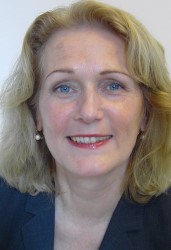
Workshop Fr05: Friday, Oct. 21, 2016, 03:15 – 05:00 pm
For a healthy loving relationship to succeed, it is necessary to know yourself. "The greatest progress at the present time, is back to our true selves."
This workshop includes a brief introduction, "The impact of shame on our identity––the masks of shame," to the relationship topics:
- Important prerequisites for closeness and trust
- Setting limits and being able to say „no"
- Letting go of dominance and control––how does it work?
- Sensuality and sexuality––empathetic communication
- The positive impact of commitment and responsibility in a partner relationship
From "I" to "You" to "We": In a fulfilling and constructive relationship, two people give each other the necessary space to develop their identity and at the same time strengthen their own self-esteem. The success of a committed partnership begins with appreciating oneself, especially in areas where we feel small and unsuccessful. For this purpose, emotional security and self-confidence is required, which increases, when we take the risk to show our vulnerability in the relationship with ourselves and others.
The process work "self-encounter with the sentence of intention" will be demonstrated.
Marion Nebbe, Systemic individual, couple and family therapist, sexual counseling, leads supervisions, mediator based on the GRP, Familiylab-seminar leader by Jesper Juul, parents coaching: 2012 – 2014 training in MGP by Prof. Franz Ruppert. Individual and group work, couples.
Practice in 80799 Münchenwww.marion-nebbe.demarion.nebbe@web.de+49 89 37985355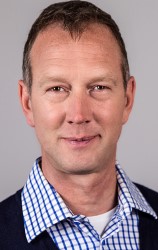
Workshop So03: Sunday, Oct. 23, 2016, 11:00 am – 01:00 pm
Sexuality is much more than a vehicle for the continued existence of mankind. Through sexuality, contact is made with a counterpart. It is communication on a physical, emotional and mental level. This is the reason why physical closeness, touching, body warmth of another human being, as well as being seen, are reason enough to activate unpleasant, painful or traumatic experiences within us. If we are not able to assign these feelings to the initial scenario and situation, it seems reasonable to give the other person the blame. The consequences are relationship problems and further emotional splitting as well as sexual disturbances preventing us from having a pleasurable and fulfilling sexuality.
In this workshop the point is, to understand the meaning and function of sexuality beyond mere reproduction. After a brief overview of the development of sexual maturity, I will discuss the requirements, on how to develop a healthy relationship with our body, to our genitals, to our partner and to our own sexuality and which experiences can interfere with this inner bonding. Using a series of case studies, I will show what consequences overwhelming experiences can have on sexual development.
Following the lecture, I offer the possibility to learn about the perhaps unrecognized potentials or even experienced oppressive encounters of one's sexuality and integrate them if possible. Interested participants will be selected in a draw.
Stephan Niederwieser, born in 1962 in Bavaria studied in New York and Munich, lives in Berlin since of 2004. Naturopath since 1989. Hakomi therapist (experience-oriented body psychotherapy), Constellations since 2009. Training with Franz Ruppert 2013. Works with individuals and groups in his …
Practice in 10827 Berlin, München und Hamburgwww.stephan-niederwieser.destephan@stephan-niederwieser.de+49 30 236 177 02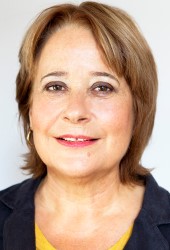 Workshop Fr04: Friday, Oct. 21, 2016, 03:15 – 05:00 pm
Workshop Fr04: Friday, Oct. 21, 2016, 03:15 – 05:00 pm
This workshop is aimed primarily at people who are active in youth welfare or other human services professions. The everyday encounters with the trauma of clients in combination with the task of the skilled professionals to support them, has repeatedly shown countless "traps”, where helpers are at risk of losing their energy and motivation. Also a clear formulation of objectives with respect to the labor contract cannot protect professionals against strong emotional stress.
In order not to get caught up in the issue of clients, it has proven helpful to turn to one’s own, not yet (sufficiently) dealt with topics. If not, there is always the danger of being "triggered" in the work environment and getting entangled with the client, therefore no longer being able to work effectively and unnecessarily losing a lot of energy. A good foundation for successful work of professionals is the knowledge that not only the clients, but the fact that we are all traumatized. From here, with the help of the constellation work, an interesting journey of exploration can begin, which serves both the helpers and those seeking help.
Hedwig Nießen, born in 1954 in the Rhineland, the mother of two young adults. After a graduate teaching degree, she was trained for trauma and educator Trauma-centered expert advisor. She works since 1995 in crisis counseling and youth services. In 2012, she learned the identity-oriented Psycho Trauma Therapy by Prof. Dr. Ruppert and provides this method to individual clients and groups.
Practice in Tübingen und Stuttgartwww.hedwig-niessen.comhedwig-niessen@t-online.de+49 7472 949694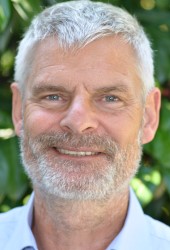
Workshop Fr15: Friday, Oct. 21, 2016, 05:30 – 07:15 pm
"Attached to each tooth, there's always the whole person"
To what extent and in what ways everyone is looking for ways to treat their symptoms, is certainly very different. In many cases, conventional treatment and methods - especially concerning the teeth, mouth and jaw area - alone are not effective enough to treat the symptoms of the body usefully.
As a holistic dentist, I deal daily with patients that feel pain in their teeth and jaw region, often radiating to the head and shoulder area. When asked, it becomes evident that these patients have already been treated by conventional medicine in various ways, without any success. After being invited to my seminars, and through the "constellation of the sentence of concern" unconscious and therefore unresolved, usually early traumatic experiences, search for a way to express themselves beyond the symptoms.
"Constellation of the sentence of concern" provides a large potential through our diverse symptoms, to better understand ourselves and our bodies. This enables us to take important steps towards our health and personality development, thereby allowing dental therapies to take effect.
In this workshop I will explain this approach with examples from my practice and provide the opportunity for individual constellations.
Thomas R. Röll, born 1958, since 1990 Dental Holistic with the main focus dentistry in private practice established in Ulm, since 2008 additional practice for coaching and systemic consulting, lectures and seminars, since 2009 training and supervision for the constellation method on the basis of binding and trauma with Prof. Franz Ruppert.
Practice in 89073 Ulmwww.ganzheitliche-zahnmedizin-ulm.deinfo@ganzheitliche-zahnmedizin-ulm.de+49 731 7157496
Workshop Sa16: Saturday, Oct. 22, 2016, 11:00 am – 01:00 pm
The "I" function is of considerable importance in the newest type of work, such that the "will" function has taken second place. How does a healthy "I" and a free "will"interact with one another, and what happens when the "survival I state", together with the "will to survive programs" determine or influence our conduct? These basic patterns are to be examined in more detail using a practical example.
Franz Ruppert, born in 1957, professor of psychology at the Catholic University of Applied Sciences Foundation in Munich, psychotherapist in private practice trainings and supervisions, leads worldwide seminars and lectures.
Since 1994 he has developed his own theory and method of Psychotherapy. The "identity-oriented psychotrauma theory" is the basis for a method that he calls "self-encounter with the sentence of concern". The development of his theory and method are documented in seven books (Relationships in the Professional World ", 2001," Confused Souls, "2002" Trauma, bonding and family constellations ", 2005," Splitting of the Soul and Inner Healing ", 2007" Symbiosis and Autonomy“, 2010 "Trauma, Fear and Love", 2012) and "Early Trauma", in 2014. His books have been translated into English, Norwegian, Italian, Spanish, Brazilian, Russian, Czech, Romanian, Polish, Turkish and Dutch.
Practice in 81673 Münchenwww.franz-ruppert.deprofessor@franz-ruppert.de+49 170 7348434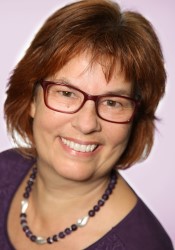
Workshop Fr14: Friday, Oct. 21, 2016, 05:30 – 07:15 pm
In the first year of life, a healthy "I" can develop well, in a loving benevolent environment and in particular with loving attention of the mother. Even the course of the "terrible twos" and adolescence phase are crucial and decisive for the development of their own identity.
Adolescence is a stage of detachment, a time in which even harmonious families often reach their limits. There is anger, melancholy, conflicts, border crossings and provocations. The children are rebellious; they ally themselves with their peers, and they will do almost anything now, for their recognition. Nothing disturbs more than their parents, with whom the children are entangled in very different like love. The timing of the physical, emotional and social autonomy of the child is a difficult process for everyone involved.
In this workshop I would like to present symptoms and examples of children and young people from my practice, where the development of a healthy "I" has been affected.
The "Sentence of the Concern" is meant here for young people, as a useful opportunity for intervention to support the "I" development
In the preparation process, not only the young people have the opportunity to get more clarity about their situation and their feelings, but also their parents can experience and feel how their children feel.
Birgit Schaumburg, born in 1960, married with two adult children, one grandchild, worked as a Qualified Social and naturopath in private practice for over 20 years.
Practice in 73732 Esslingenwww.heilpraxis-esslingen.deinfo@heilpraxis-esslingen.de+49 711 373072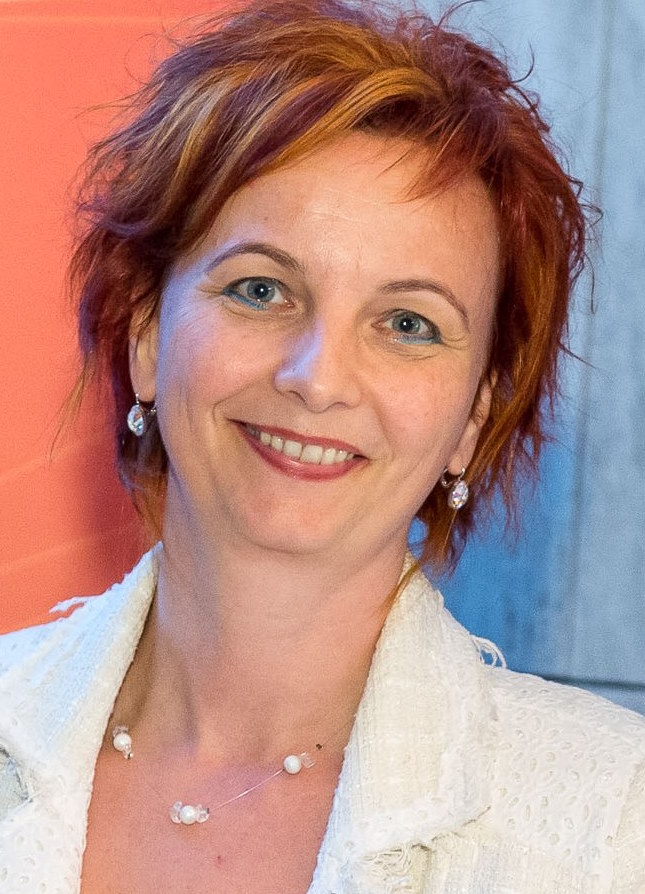
Workshop Sa04: Saturday, Oct. 22, 2016, 11:00 am – 01:00 pm
Many are faced with the challenge of accommodating work, family, and partnership. Often our parents are not the best role models. Knowing––"That's not how I want to do it!"––Is not enough. It is just as big a mistake to live contrary to our parents lives. For other people, the mother or the father are THE role model––"I want to be just like them!"––Which might sound nice, but at a closer look contains nothing of their own. Many notice that in their relationship to their own children, somethings not "right" "How to do it otherwise? “is the question. The same applies to partnerships. I do not want the relationship my parents had, or––"Everything was wonderful, why can I not succeed?" The interesting question is: "Am I living a role? Do I live what I want, or what is expected of me? "An important point is, how much of my profession do I carry home to my family. Am I mentally present or still at work? In order to change something, it takes an honest look at my relationship with my mother and father, starting from birth. What did I receive, and what was neglected? What am I repeating and how do I compensate? To be able to provide for myself, my children and my partnership, a healthy, adult "I" is needed. Can I take good care of myself, can I manage to have a healthy relationship with myself and thus also a family in the present? By means of "exploring the sentence of concern" both can be succeeded. Today as an adult I can make my own decisions, reorient myself and provide for myself. So that we can succeed in living the life that we want here and now.
Bettina Schmalnauer, born in 1970, in second marriage, three daughters. 2011 training with Prof. Ruppert, since then constantly with him in practice and in his seminars. Self-employed in private practice since 2008 with BodyTalk, life counselor, coaching, work by Franz Ruppert in monitoring individual and groups.
Practice in 4800 Regauwww.schmalnauer.eubettina@schmalnauer.eu +43 664 1461381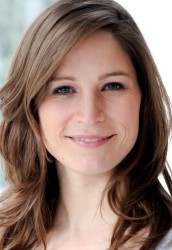
Workshop Sa10: Saturday, Oct. 22, 2016, 02:30 – 04:30 pm
Which is Luise and which is Lotte, and why can't even the parents distinguish from the famous double Lottchen? The similarity of twins makes for some confusion in the classroom or among friends. However, it is often very difficult for (monozygotic) twins or multiple births, in return, to intrapsychically clearly distinguish themselves from others and to carry out their own independent ego development.
Twins, in their formation are exposed to a special development. Depending on the particular characteristic of the twin, they experience a symbiotic time. Often they initially share uniqueness and then separate during the course of development.
What affects does the closeness in the womb and in the development; the external and internal similarity or dissimilarity as well as the reactions of the environment on the ego development have on twins - especially under traumatic conditions? Which development tasks do twins have to cope with additionally and to what extent does society, the school system and educational myths prevent or hinder the development of an independent “I” function in twins?
In this workshop, theoretical considerations on twin development in connection with the theory of “I” development and “I” function are set. In addition to the theoretical pulses there should be time for mutual exchange and a constellation.
Corinna Schürmann, 1983, certified pedagogue, special educator, mediator for guidelines BM, trauma therapist (MPT / identity-oriented Psychotrauma theory), Lecturer. Since 2013 Corinna Schürmann accompanies people with traumatic life experiences in private practice in Hamburg, schools and youth welfare foundations, among other things, advises on the subjects of trauma, bonding, identity development, intercultural education and communication, she also provides supervision of constellations.
Practice in Hamburg www.trauma-nord.demail@trauma-nord.de+49 176 30626129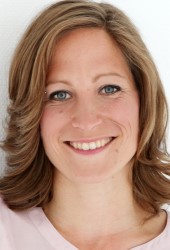
Workshop Sa02: Saturday, Oct. 23, 2016, 11:00 am – 01:00 pm
Life path reflection and self-realization
When do I begin to reflect on my life? At its end? Once I retire? When I'm over 70 years old or only if I get sick? Although many people try to repress it until their death, in the course of a lifetime and aging process, every human being is confronted with the finiteness of life.
When accompanying in terminal care, it is often very clear what people, in retrospect, would have wanted to do differently in their lives. Here we see many similar regrets: too much work, too little time for their own interests, their own families, too many constraints, social or family.
In the later and final stages of life, we often reflect what has happened to us in our lives, what we have seen and experienced––but also what we ourselves have done or neglected.
Many people get a feel for their unfulfilled expectations and realize what would have been really important in their lives. They become aware of their survival strategies and support structures that have lead them through their lives.
This workshop applies itself under the view of identity and "I" development concerning the question; how can one succeed in following the own will earlier and recognize survival mechanisms? What do we need, in order to obtain healthy contact with one's self, before the arrival of our own mortality and realize our own ideas?
Marina Schürmann, born in 1983, Dipl. Paed., special educator. Grief support and palliative care, trauma therapist, mediator for guidelines BM, lecturer. Practice since 2014, psychosocial support in hospice care, counseling and supervision for schools and social institutions in the fields of trauma, attachment, grief, communication and occupational health.
Practice in 28203 Bremenwww.ankerlicht-bremen.de kontakt@ankerlicht-bremen.de+49 176 310 61 529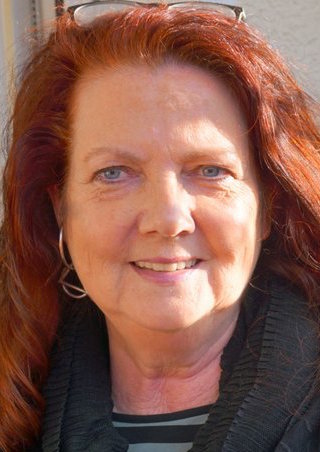
The title clearly indicates the mental separation between “I” and body. How and why the splitting of body and psyche is caused through traumatic experiences, are the central questions of this workshop. Let’s assume that we have a body but are not our bodies, it is then possible to think, feel and act in perpetrator-victim structures. The appearance of the body is often strange and unloved and becomes an "It". But is it also a part of the self-identity? If the expression of one's body is no longer understood, the body is alien and therefore a stranger. Idioms and figures of speech are created in which, among other things, symptoms and diseases are "combated" and "defeated". As a result one's own body is no longer seen as an opportunity to move forward to new destinations or towards a loved one, but as an obstacle that must be overcome. This can be reflected in a variety of physical symptoms such as, (eating disorders, autoimmune diseases, etc.) and perhaps also in transgender topics. Out of survival strategies, the body is often reduced to suffering and pain, without the deeper hidden meaning being revealed. Through this hostile treatment, confrontation with the actual suffering and the associated trauma is avoided. In this workshop, it is possible by means of "self-encounter with the sentence of intention" to resonate and clarify questions, after a theoretical introduction.
Cordula Schulte, born 1952, married, two children, two grandchildren. Naturopath for psychotherapy since 2004, individual and group therapy. NLP master trainer for Energetic Psychotherapy, lecturer and seminar leader (DPS). Since 2009, training and supervision in identity-oriented psycho trauma therapy with Prof. Franz Ruppert, co-author of "Early trauma"
Practice in 45138 Essenwww.cordula-schulte.deinfo@cordula-schulte.de+49 174 3134805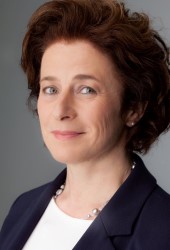
Workshop Sa14: Saturday, Oct. 22, 2016, 02:30 – 04:30 pm
The identification with one's own possessions takes place on various levels: the apartment, the car, the clothes, the job, hobbies, smartphone, sport, diet, etc. Do we identify with the objects that we possess? What emotional reactions are triggered in us when friends or even our own family depreciate our property, or find it ridiculous? Do we start to feel ashamed, sad or angry? Do we start to defend our possessions, to justify it, and thus ourselves? What happens to us when we lose our possessions, destroyed by others or we are unable to afford these things? Do we get our self-esteem from the objects that we possess?
Possession is an essential component of our psychological and social identity.
In my workshop there is the possibility to better understand and process our own emotional reactions in case of loss, devaluation or destruction of property as well as non-attainment of possession. Using the method "Self-encounter through my Sentence of Concern" it is possible to recognize why we look at and identify with external things that we possess, and why the possession of certain things are crucial for us.
Manuela Specht, born in 1964, two adult children, since 1988 registered nurse, since 2008 works as a psychological counselor/trauma counselor with the trauma therapeutic method according to Prof. Franz Ruppert.
Practice in 83646 Bad Tölz und Münchenwww.systemische-beratungen-specht.demanu.specht@t-online.de+49 170 27 62 533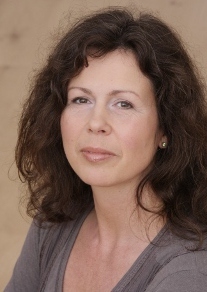
Workshop Fr11: Friday, Oct. 21, 2016, 05:30 – 07:15 pm
When somatic symptoms (such as weight problems, hypertension, asthma) are expressed, these are often the consequences of experiences of violence in many different forms, either on one's own body or even past generations.
Other possible consequences: no healthy contact with one’s own body, mental "illnesses" as "Bipolar disorder" or even "schizophrenia". Also, happy, stable partnerships and healthy sexuality are often not possible.
By means of the constellation work, the cause and background of physical and mental symptoms can gradually be uncovered and healthy contact with the body and a healthy relationship with oneself can be restored.
Andrea Stoffers, born 1963, since 2007 naturopath for psychotherapy in private practice with a focus on preparation work on the basis of attachment theory by John Bowlby and the Multigenerational Psychotraumatology by Franz Ruppert. Co-author of "Early trauma". Therapeutic guidance, seminars, supervision and training.
Practice in 41460 Neusswww.hp-stoffers.depraxis@hp-stoffers.de +49 2131 939 63 68
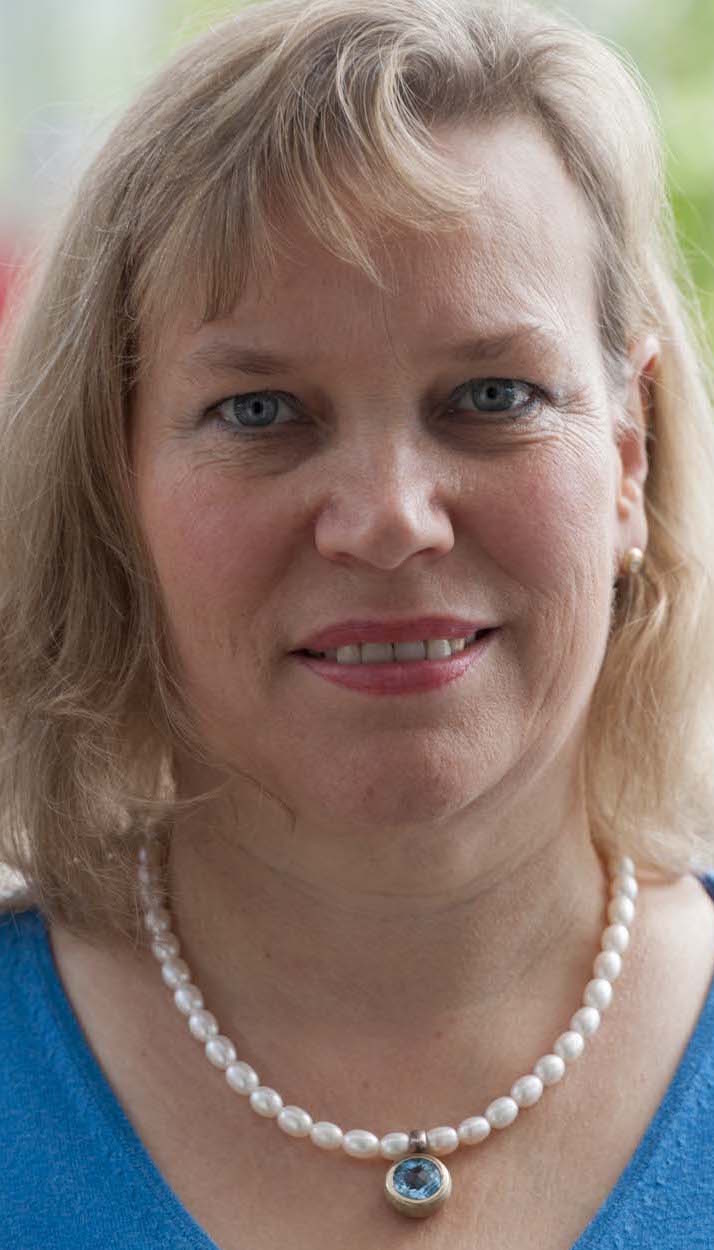
Workshop Fr16: Friday, Oct. 21, 2016, 05:30 – 07:15 pm
In a relationship with a loved one, most people want to have, a stable, happy and fulfilled life together. Often the driving force is the desire for merging with another in a relationship, the desire of an "I" to make a "we", to be one "heart and soul". But is that a mature and self-determined inner motivation for a love relationship?
Our first emotional and physical love relationship was the relationship with the mother. The quality of this first love has laid the foundation in how we perform as adults in our relationships. With this pattern we search for a partner and fall in love with a person, who finally provides us with the desired longings, selflessly as a mother does.
How does the ability to love differ from the need for love? What makes a healthy and fulfilling intimate relationship? Can we stay true to ourselves in the togetherness, or does our partner demand that we take on a specific role, so he or she is happy? By "exploring the sentence of concern", the client can see and experience, in the encounter with their "I", how capable they are in making contact with themselves.
After a short introduction, one or two participants will get the opportunity to do their "own work".
Dagmar Strauss, born in 1962, married with three grown-up sons. Naturopath since 1988, worked in private practice 1991 onwards. Training in classical homeopathy, training in family constellations, Somatic Experiencing, since 2010 with Prof. Ruppert, also regular internship in his office. Since 2012 individual and group therapies with "constellation of the concern."
Practice in Munich and 84072 Au in Haltertauwww.lebenssinn-wandlung.de kontakt@lebenssinn-wandlung.de+49 179 2975331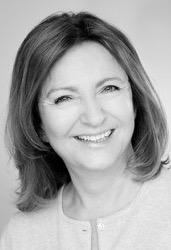
Workshop Sa08: Saturday, Oct. 22, 2016, 11:00 am – 01:00 pm
My deep passion for Franz Ruppert’s work stems from the fact that, through using his own developed theory (Identity oriented Psychotraumatheory (IoPT) in therapeutic work with the method ”Sentence of my Intention”, I am able to reach my own deepest layers, and those within my clients psyche. The development stages from the fertilized egg to the current stage, and all the layers in between. To me, this is like a spiral, where all the different layers are available, ‘on call’ to be accessed both in therapy and in daily life.
When clients come with their „Sentence of my Intention”, including work issues, we are thus able to use this process to track back to the root of it. Often what is mirrored in the resonance process is an early trauma, or trauma of love. It is still not mainstream knowledge that a newborn or unborn child has a psyche, therefore it can often take some time for us to grasp that these early or sometimes pre-birth traumas, still impact us and the way we are living our lives.
Clients from many different countries are attending my seminars with a variety of intentions to explore relational challenges within the family, among friends or in the workplace as well as „physical symptoms”.
There will be the opportunity for own work during the workshop.
Marta Thorsheim is a Psychotraumatherapist based in Norway, running her own institute based on Franz Ruppert’s work. Her first training was in International Business (MBA, MM). In the 90-ties she started the walk of psychotherapy, and when she met Franz Ruppert she said”This is it”, and changed the whole program at her institute. She is running workshops and trainings in Norway, Singapore and Australia. And is also one of the co-writers with Franz Ruppert on his book „Early Trauma”.
Practice in Oslo, Norwegenwww.konstellasjoner.nomarta@konstellasjoner.no+47 916 67 211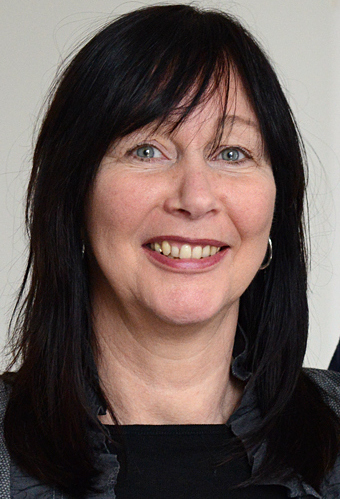
Workshop Sa05: Saturday, Oct. 22, 2016, 11:00 am – 01:00 pm
Menopause as an opportunity for identity and autonomy development
Mental and physical changes around the menopause, is unsettling for many women. Even devaluation and feelings of loss are frequent consequences. Menopause provides the opportunity for identity clarification and -findung. What we have previously defined for ourselves, is placed in question:
- Is it still useful to have to be quick?
- Is it still important never to be afraid?
- Whom did I have to prove, never to be tired?
- Am I only a woman when capable of childbearing?
Overexerting experiences in early years of life, can cause psychotrauma that causes our psyche to split. Behaviors were created, which were useful in the past, but in the present, have become detrimental and "self-propelling". In working with the sentence of concern, we encounter these parts - we encounter ourselves. Unconscious survival strategies can be replaced by healthy, self-chosen behavior..
The workshop mainly refers to the female menopause. Men go through the change in another form. You are welcome to gain more understanding of the taboo subject of menopause. After a brief introduction, there is the possibility to utilize the group for identity finding.The spaces for self-encounter through the sentence of concern, will be raffled.
Andrea Tietz, born 1959, married, mother and grandmother, naturopath since 1994, her development as a woman and naturopath, inspired her on the topic of menopause. To facilitate mental and physical phenomena she uses naturopathic treatment and constellations.
Practice in 10179 Berlinwww.core-evolving.deATietz@core-evolving.de+49 30 24083904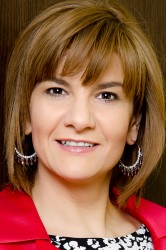
Workshop Fr13: Friday, Oct. 21, 2016, 05:30 – 07:15 pm
This workshop aims to help those, who want to promote their mental health and their identity, which is hidden behind their own abortions or those of their mothers or grandmothers. An abortion or an abortion attempt is the clearest expression of perpetrator-victim dynamics and has for a mother, serious effects. As a consequence, the relationship of this mother to her children results in various physical, emotional, behavioral and partnership-related difficulties. Furthermore, symptoms such as illnesses, genital or reproductive disorders, sexual disorders, relationship problems with partners and children, low self-esteem as a woman, etc., arise in the mother and the children.
With the support of others and in accordance with your intention, this workshop offers the possibility to become aware of your own victim or victim-perpetrator attitudes in your life––resulting in positive effects on your health, your relationships, sexuality and identity.
Dr. Diana Lucia Vasile studied and received his doctorate in psychology. She is currently working as a psychotherapist. In order to deepen and broaden her knowledge as well as applying it, she participates in trainings, workshops and numerous conferences and travels in four continents. Diana is a book author and writes articles for professional and lay public.
Practice in Bucharest, Romaniawww.psihotrauma.rodianavlucia@gmail.com +40 722 30 30 41Workshop Sa03 Oct. 22, 2016, 11:00 am – 01:00 pm
Worldwide, more than 60 million people are on the run, many of them in appalling conditions. We have kept this fact away from us for a long time- until last year, when we were on the island of Lesbos and witnessed, one boat after another arrive. Almost 30,000 people in two days! We were shocked. We saw how, within four years, small fishing villages had developed private initiatives to find a response to the humanitarian catastrophe that literally unfolded before their homes. The ingenuity and willingness to find solutions, deeply impressed us.
We could no longer ignore the question: What does that have to do with me? Who am I in relation to displaced persons? How do I relate to the fact, that so many people are moving to distant countries and leaving everything behind? What is being reflected within me by the large influx of refugees? What feelings are being aroused in me, that I was barely aware of?
Collective issues such as the fleeing of large crowds of people, appeal to each of us. This raises the question: To whom or what I'm fleeing from? Who or what do I turn to, and from what am I seeking refuge? Who am I in this force-field? Where within me, are refugees, releasing unprocessed perpetrator-victim dynamics? Which role do topics on "fleeing", "being displaced" "leaving it all behind" play in my personal life or in my family history, or in my country, nation, or continent? What fears and survival parts are being triggered within me?
In this workshop, we will reflect in a brief introduction, these questions and integrate them into the theory and method of the LOPT. We choose the interactive process, in which everyone has the opportunity to experience self-awareness and self-exploration. There will also be an opportunity for a self-encounter and any open questions. Not because we can answer them, but because we can provide clarity and awareness using the method.
Margriet Wentink, born 1963. Training in NLP and hypnotherapy, child therapy and art history. Training and supervision at Franz Ruppert since 2005. Co-author of the book: "Early trauma". Two books about more generational trauma in the Netherlands.
Wim Wassink, born 1944. training in special education, individual psychology and NLP. Supervision at Franz Ruppert.
Since 1996, Margriet and Wim have their own center for multi-generational psychotraumatology operating in Interakt in Tiel (NL), since 2006, they work with the method of Franz Ruppert which they have introduced in the Netherlands. Together they have translated several books of Franz Ruppert into Dutch. They offer individual therapy, group seminars and training in the Netherlands, Belgium and Germany.
Practice in Germany, Belgium and the Netherlandswww.interaktiel.nlinfo@interaktiel.nl+31 344617111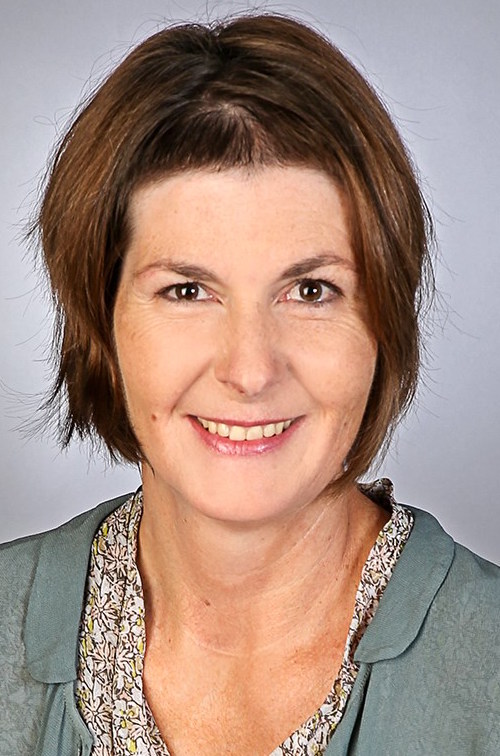
Workshop So05: Sunday, Oct. 23, 2016, 11:00 am – 01:00 pm
Not all mothers love their children. If a child has experienced openly, covertly, directly or subtly, rejection, hatred, or even attacks of destruction, the first relationship in life is based on, not to love, but to fear. The child experiences itself alone and powerless and is additionally confused by an environment which maintains the idealized image of an "always loving mother."
Children are dependent; destructive feelings and violence of the mother can neither be understood nor placed, the child cannot change anything, nor leave. The desire for love, closeness and contact with the mother is contrary to the fear of the mother, the need for protection. Existential threat as a "normal state" in childhood leads to the development of severe to extreme survival strategies, affecting all relationships, including the upbringing of their own children and leads to physical and mental stress limits, over the years.
In the workshop, we deal with aspects of affected persons and the impact on the "I", the identity and own will.
Elfriede Wimmer, born in 1960, widowed, 3 adult children. Naturopath for psychotherapy. Primary and Further Education: Holistic Psychotherapy, body-oriented methods, grief counseling, Systemic Constellations, Collective systemic process lineups, Voice Dialogue, exploring the concerns set.
Practice in 81829 München www.elfriede-wimmer.detherapie-wimmer@t-online.de+49 177 2960761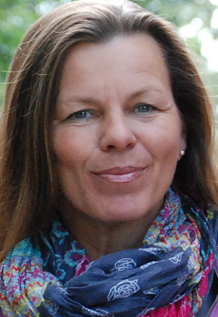 Workshop Fr02: Friday, Oct. 21, 2016, 03:15 – 05:00 pm
Workshop Fr02: Friday, Oct. 21, 2016, 03:15 – 05:00 pm
When the consequences of trauma and attachment disorders prevent contact with the authentic self and affect the own decision-making.
When at conception and during pregnancy, no love and rejection is felt or all possible forms of violence prevail, we have to split ourselves at a very early stage of our lives. After delivery, it is very likely to continue in a traumatized, emotionally non "present" family. As a result, it is increasingly impossible for a human being to stay healthy, autonomous and to develop as an individual. To survive in such an environment, there will be numerous adaptations and splitting of the own identity. As such, real contact with themselves, to their own feelings, desires, thoughts, needs for "danger", and future are avoided. From this, a variety of physical and / or mental pathologies can develop in the course of a lifetime. Using the method "Self-encounter with the Sentence of Concern”, these pathologies can gradually be detected.
In addition, I offer a horse-assisted personal development therapy, which also serves the deep self-encounter and self-knowledge and can enrich the therapeutic process.
In the workshop there is the possibility of a self-encounter for a participant with the "Sentence of Concern" after the lecture.
Sabine Wintzen, born in 1963, coaching license DSB (German Sports Federation) for riders and horses, psychological advisor IAPP, horse-assisted training. 2010 Training in multigenerational Psychotraumatology by Prof. Franz Ruppert Birgit Assel igtv. Since then, continuously participating in supervision, intervision,work shadowing and visits of seminars of Prof. Franz Ruppert. Since 2012 Sabine Wintzen offers in individual work and group seminars "Self-Encounter with the Sentence of Intention".
Practice in 40235 Düsseldorfwww.sabine-wintzen.desabine-wintzen@gmx.de+49 157 72547998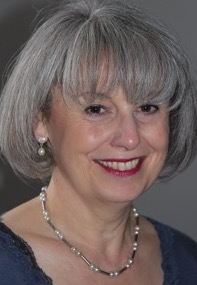
Workshop Fr06: Friday, Oct. 21, 2016, 03:15 – 05:00 pm
Impact of traumatic experiences on a person's identity
When a person suffers a trauma, this usually has major consequences on the identity or identity development. Decisive for this is the point in time of the traumatic experience. Is this at an early stage in life, for example prenatal, then it has an effect on the neuronal circuits in the brain. This means that the genetic coding of each individual cell is altered. Early trauma thus changing the cell internal chemistry and is stored in the memory cell. From these structures, the human being develops identity and his "I". So it is possible that a traumatized person can perceive only trauma feelings and personify themselves as trauma, in terms of: "I am Trauma". Or affected persons are entangled by a trauma with people and their emotions to the degree that they cannot distinguish what belongs to them and to those of other persons. They feel, at the same time their own feelings and the feelings of others within themselves, i.e. the mother, the father, the perpetrator ... There is no longer a border between them and other people. "Who am I?" ...must be discovered and developed in the literal sense.
The human brain remains malleable throughout life. We have no fixed length in primary biological-genetic determination, as was formerly believed. Learning and change is a lifetime possibility.
Martina Wittmann, born in 1960, a nurse, a teacher of nursing professions, foreign assignment on "Care Germany" in the refugee camps of the Republic of the Congo during the genocide in Rwanda. 1998 training for supervisor. 2002 training by Prof. Franz Ruppert, since 2004 seminars and individual work in private practice.
Practice in 86150 Augsburgwww.traumaaufstellung-augsburg.deinfo@traumaaufstellung-augsburg.de+49 170 4802023
Workshop Sa06: Saturday, Oct. 22, 2016, 11:00 am – 01:00 pm
In my practice, I experience, that many clients' relationships with their spouse, children, business partners, friends and colleagues are often destroyed due to anger, aggression, rage and / or violence. In Franz Ruppert's theory, among the major types of trauma, anger primarily originated from someone who attacked us and as case studies show, were often our guardians, such as our father or mother who also suffered a bonding trauma and / or bonding system trauma in which, violence took place in former generations.
In my clients' processes on "What is behind the anger" most of the time it leads them to memories of their angry parents, who inflicted verbal, physical or sexual abuse on them. Though helpless and traumatized, they are dependent on the perpetrators no matter how unsafe they are. What's most surprising, many of them have no memories of their violent childhood. This shows to what extent their survival parts protected them from the truth.
In this session, I want to support you to discover "Who am I in my anger, violence and rage?" Is your "I" healthy or is there a different identity? Are you angry with yourself or the perpetrator? Are you in a constant hyper-vigilant state? I want to share with my research on the impact rage and violence on babies and how Franz's exploration method can support the individual to heal and which has been scientifically proven to heal the brain that has been wounded. We will do one or two self-exploration processes after a brief lecture.
Christine Foong Wong, born 1971, Singapore, psycho trauma therapist, practice in coaching and training since 2004, since 2013 closely working with Franz to pioneer IoPT workshops in Asia. Professional Training with Franz Ruppert and Marta Thorsheim in Asia.
Practice in Singapore 198785www.rhemaworks.comchristine@rhemaworks.com+65 96803537
